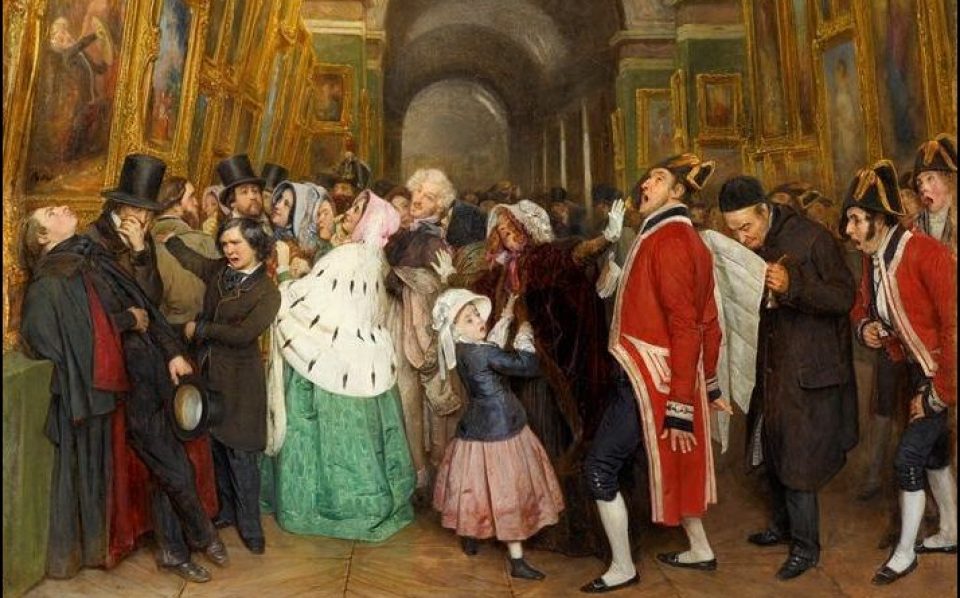Our class was given the wonderful opportunity of an inside look at the realities of the art criticism world by art critic, Christina Rees. Her presentation consisted of her personal life as well as her positive and negative experiences as a critic.
One of her main pieces of advice for us was that this profession and it’s community is not one our country deems significant or financially supreme. But, it is exponentially rewarding and personally fulfilling — not to mention, you get to actually enjoy going to work. Rees explained in much detail that because the art criticism world is so small, it is not easy to establish yourself. Her transparency about the difficulty of creating a name for yourself and finding connections, was comforting to me because I appreciate knowing what exactly to expect.
I am glad we were instructed to read some of her pieces from Glasstire before coming to class, because it helped to have an idea of what her writing style was like. I came to the conclusion that she is as a critic because she does not fear giving negative criticism. She even made note of the lack of negative criticism the Texas art scene, and how it’s something that needs to be addressed and changed. I would say she may have been hinting at us/our generation of art writers and appreciators to stimulate that change. Personally, I enjoy writing negative criticism because I feel that I am able to write in a way that isn’t directed at what the artist did wrong, but more about what was missing and what could have made their work(s) better. And Rees made me feel a lot more comfortable about knowing there is a need for negative criticism and that it’s important.
I was very pleased to hear Christina Rees speak and give her advice to us future art critics. I feel more prepared and aware of what is ahead of me.
Rachael Pantuso

I also enjoyed Christina’s talk. She seemed very passionate and unyielding about her opinions which is refreshing. Reading some of her work before class definitely helped to put into perspective what she was talking about. Such as the importance of backing up negative criticism which I feel she does very well. As a artist I definitely left the talk feeling a little depressed however, it seems that the visiting lecturers often make a point that the art world is fucked, and that artist are going to get screwed by the politics of it. It has become pretty demoralizing but also hearing it over and over makes you want to figure out what to do about it. Overall I found her lecture very enlightening and engaging.
Dylan Draper
LikeLike
In addition to what Rachael wrote about Rees’s transparency and facts about negative criticism, I was really drawn to her reasoning behind why negative art criticism is important, and to whom such reviews should be given. She explicitly made the point that negative criticism is important because it shows the serious nature of art. When we take art seriously and respect it, we must be able to also write negative criticism about it. She also said that negative criticism isn’t there to annihilate and crush artists (for example, she wouldn’t give a negative review to a freshly graduated artist who is just starting out), but rather to point out things that are lacking in their work.
-Natasha
LikeLike
I was impressed with her ability to be so open about the field and her experiences with us. The honesty she showed when talking about the unknown effect the election will have on the criticism world was something I hadn’t thought of before (or at least tried not to). I think it’s important to be cognizant of how our society functions, the different layers and influences that can cause changes in our potential career path that might not be immediately obvious.
-Hudson
LikeLike